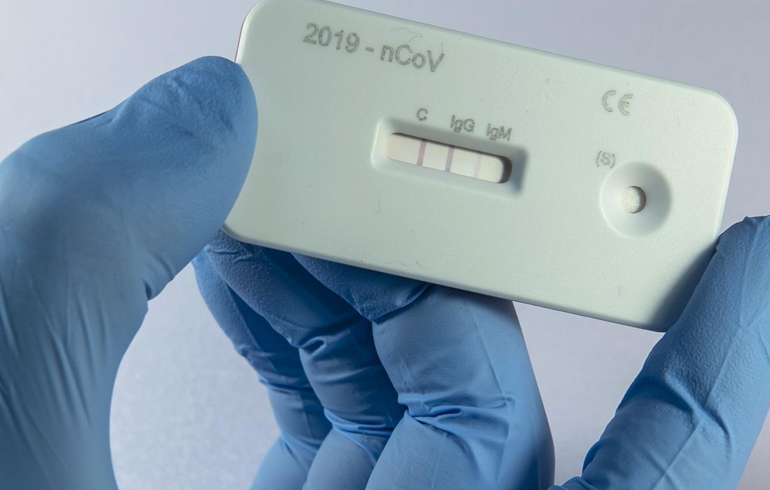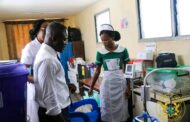A test to find out whether people have been infected with coronavirus in the past has been approved by health officials in England.
Public Health England said the antibody test, developed by Swiss pharmaceutical company Roche, was a “very positive development”.
The blood test looks for antibodies to see if a person has already had the virus and might now have some immunity.
Until now, officials have said such tests are not reliable enough.
The government previously spent a reported £16m buying antibody tests which later proved to be ineffective.
Sources told the BBC the Roche test was the first one to offer serious potential.
But BBC medical correspondent Fergus Walsh said it was still unclear how much protection the presence of antibodies would give against future coronavirus infection or how long any immunity might last.
Experts at the government’s Porton Down facility evaluated the Roche test last week, Public Health England said, and found it to be “highly specific”.
Health minister Edward Argar said the tests would primarily be used on those in the NHS and social care settings to begin with.
But he said he could not give an exact date for when the testing could start.
Prof John Newton, national coordinator of the UK coronavirus testing programme, said: “This is a very positive development because such a highly specific antibody test is a very reliable marker of past infection.
“This in turn may indicate some immunity to future infection, although the extent to which the presence of antibodies indicates immunity remains unclear.”
Roche is understood to be in talks with the Department of Health and Social Care about possible use by the NHS in England, though other testing products are also being assessed.
Health officials in Scotland, Wales and Northern Ireland make their own decisions, but are likely to follow suit if England does adopt it.
The test already has approval from medical regulators in the EU and the United States.
But it is still not yet clear what amount of immunity from coronavirus a patient might gain from having previously been infected.
The swab tests currently being carried out in the UK determine whether someone has the virus at the time of the test.
An antibody test for coronavirus has long been seen as an important part of the toolkit for plotting a route out of lockdown restrictions.
If workers have already had the virus and gained immunity they are safe to go to work – especially health and social care staff.
Recent attempts to buy antibody tests have floundered because they have been deemed unreliable.
Sources say this latest test device, produced by Roche, is the first to offer serious potential.
Talks are under way with the government over whether it can be produced at scale and at a reasonable cost.
Understandably, Whitehall sources are not giving much away because they don’t want to undermine their negotiating hand.
Sir John Bell, regius professor of medicine at Oxford University, described the test as a “major step forward”.
But although the test determined whether someone has had the infection, it did not determine “for sure” whether they would be protected from the virus in future, he said.
“We have still yet to completely understand what a positive result actually means,” he told BBC Radio 4’s Today programme. “So we’re not there yet.”
‘False hope before’
Last week, Health Secretary Matt Hancock said the UK was in talks with Roche about a “very large-scale roll-out” of coronavirus antibody testing.
But he acknowledged there had been “false hope before” and that he would only make an announcement when the government was “absolutely ready”.
The Department of Health and Social Care said antibody testing was an important part of its coronavirus strategy and an announcement would be made “in due course”.
Source: BBC




















































